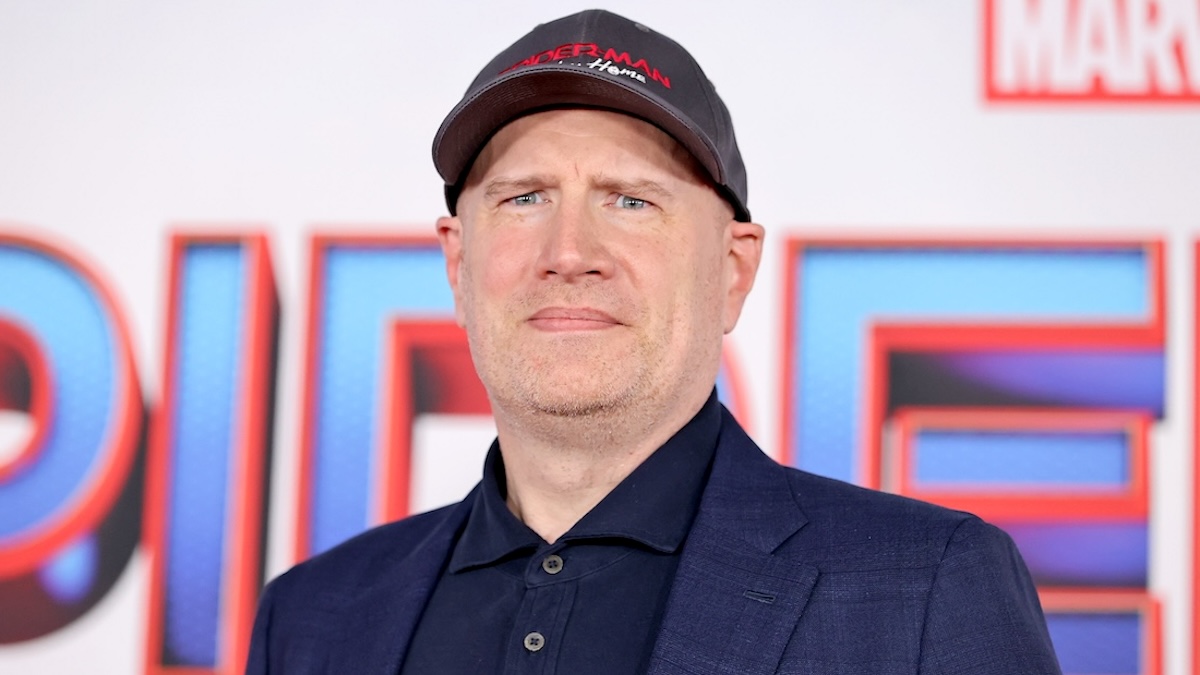It was bombshells galore at Marvel Studios today as the company’s annual retreat revealed a cacophony of chaos happening behind the scenes. And at the center of it: Kevin Feige.
Well, also Jonathan Majors, but that’s a temporary problem. As president of Marvel Studios, Feige is the backbone of the entertainment behemoth and his fingerprint is all over the cinematic franchise. Up until recently, that was a good thing, but ever since Phase Four began, the MCU has been inundated with rotten reviews, poor box office reception, and audience fatigue that currently threatens to dwarf the sequel to its 2019 billion-dollar success, Captain Marvel.
The Marvels is just days away from blasting into cinemas, but box office predictions paint it half the savior as its predecessor. The film, initially slated to release on July 8, 2022, was shuffled around the calendar numerous times to allow for post-production fixes. Eventually, Ant-Man and the Wasp: Quantumania took its release spot to give the team more time to tinker. Once upon a time — i.e. before the Marvel machine became too large to handle — Feige’s superpower for swooping in at the last minute with post-production edits wouldn’t have been a bad thing, but according to an inside report conducted by Variety, that couldn’t be farther from the truth nowadays.
“Kevin’s real superpower, his genius, has always been in postproduction and getting his hands on movies and making sure that they finished strongly,” a source close to The Marvels said. “These days, he’s spread thin.”
Marvel’s unique process has been under considerable scrutiny lately, what with its TV endeavors getting publicly criticized for foregoing all the traditional models of making television without the desirable numbers or audience interest to prove such deviations beneficial. Post-production edits are nothing new in filmmaking, but Marvel Studios has earned a notorious reputation for heavily relying on back-end adjustments to fix what could have been avoided, had proper preparation been implemented at the beginning. Basically, Feige gets the last word, and sometimes that last word means entire swaths of scripts have to be reworked.
![Monica Rambeau [L]. Captain Marvel [C], and Ms. Marvel [R] in a cropped poster for 'The Marvels'](https://vip-develop.wegotthiscovered.com/wp-content/uploads/2023/10/The-Marvels-Poster-1.jpg)
This was perhaps most evident on the Disney Plus series She-Hulk: Attorney at Law, where Feige’s last-minute input resulted in what was then the penultimate episode becoming the premiere episode. If you’re looking for someone to blame for Tatiana Maslany’s awful VFX as the Green Goliath, blame Feige.
Indeed, Disney CEO Bob Iger confirmed suspicions of superhero fatigue when he suggested the studio would be pulling back on its serialized endeavors to stave both audience fatigue and astronomical spending. Shows such as Echo and Agatha: Darkhold Diaries received revised release dates and were moved from 2023 to 2024. Meanwhile, the endlessly delayed Blade movie has been given the smallest budget in MCU history, which may end up being either a sign of careful spending or impending doom.
“Writing the Marvel obituary would be ill-advised,” said Jason Squire, professor emeritus at USC School of Cinematic Arts. “Kevin Feige is the Babe Ruth of movie executives, and Marvel has the most profitable track record in movie history. No question.”
That may be true, but something has got to give if Marvel hopes to earn back the trust it’s lost in the years since the COVID-19 pandemic birthed its television department and gave way to too many projects to keep track of. Feige is just one man, and while one man can do a lot, not even all the genius in the world can help him be in several places at once.
Unless Marvel Studios finds a way to rework its process, we could find ourselves reviving beloved MCU alum from the dead for the sake of milking sentimentality. If Feige truly wishes to maintain complete control over his empire, he either has to scale back output to allow for unforeseen, last-minute adjustments, or revisit whether what worked 15 years ago is still applicable today. To that last bit, I say: “the numbers don’t lie.”

